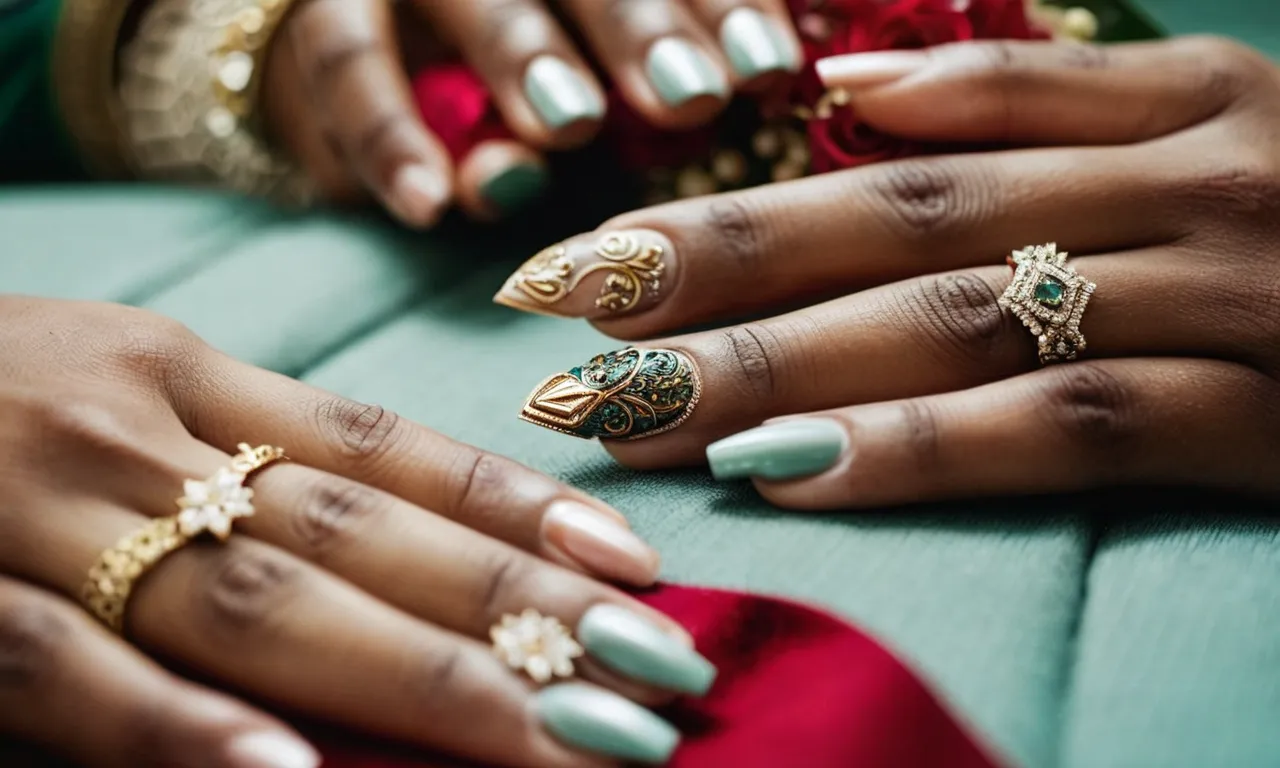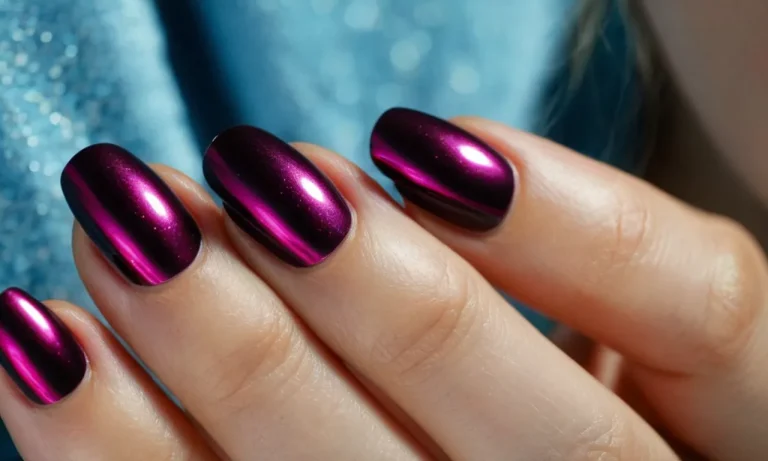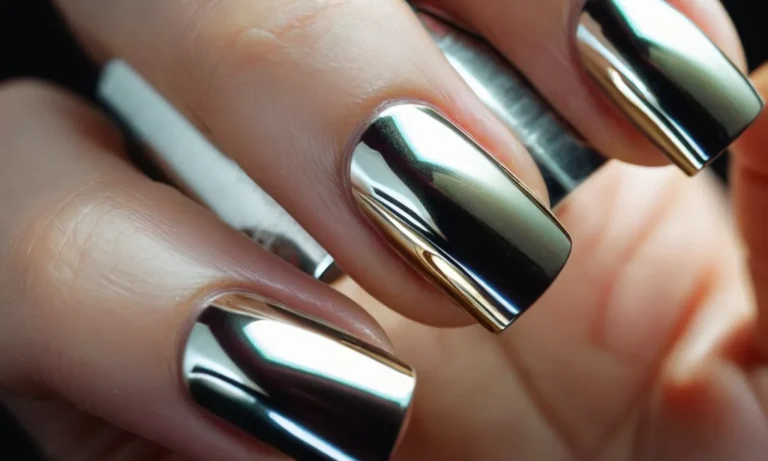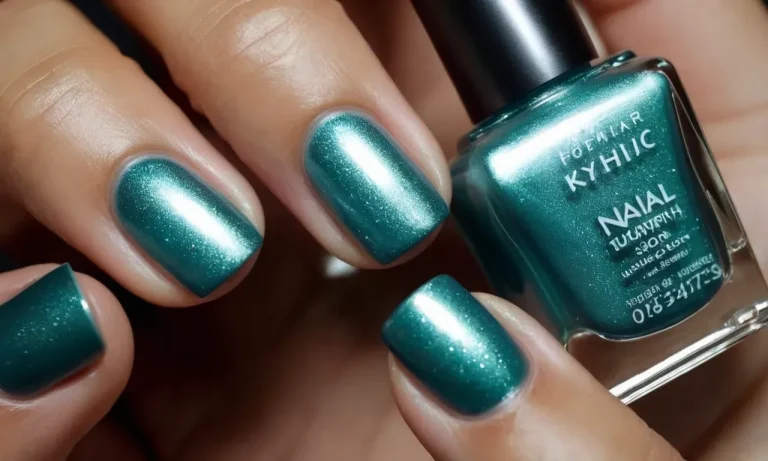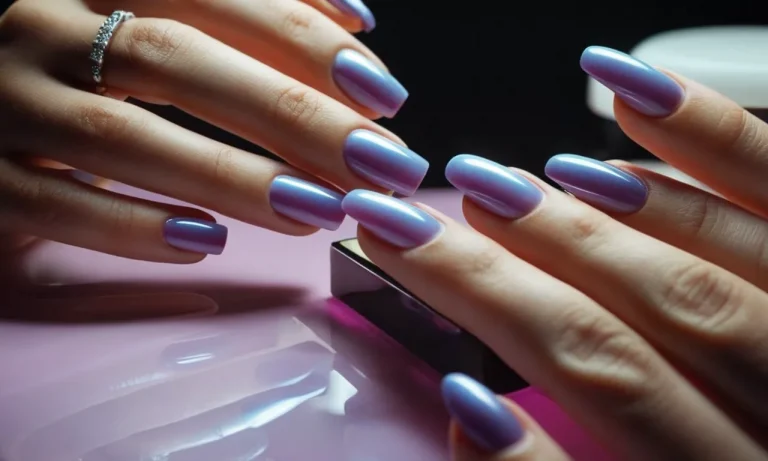Can You Pray With Fake Nails In Islam?
With the rising popularity of stylish fake nails, many Muslim women wonder if they can still pray salah while wearing acrylics or press-on nails. In this comprehensive guide, we dive deep into the Islamic rules on nail polish and extensions to help you understand what is halal and what nullifies wudu or salah.
If you’re short on time, here’s the quick answer: most scholars allow natural looking fake nails in Islam as long as wudu can still be correctly performed. Extremes lengths or designs could invalidate salah.
Islamic Rules on Wudu with Nail Polish or Extensions
Does nail polish or fake nails nullify wudu?
There is some disagreement among Islamic scholars on whether nail polish or fake nails invalidate wudu. The majority opinion is that wudu is nullified if the nail polish or fake nails prevent water from reaching the nails during the washing of hands and feet.
According to this view, the purpose of washing the hands and feet is to allow water to reach all parts of them.
If nail polish or fake nails form a barrier over the nails that prevents water from reaching them, then wudu is invalid. This is the opinion held by the Hanafi, Maliki, and Hanbali schools of Islamic law.
However, some scholars, especially within the Shafi’i school, argue that wudu is valid as long as the water touches the surface of the nail polish or fake nails. They state that only a physical barrier like gloves would invalidate wudu, not nail enhancements.
To be on the safe side, many Muslims choose to remove nail polish or fake nails when making wudu to avoid any doubt about the validity of the ablution. Using permeable “breathable” nail polish is another option.
Can you do tayammum over nail polish?
Tayammum is the dry ablution substituted for wudu when water is unavailable or harmful to use. According to the majority of scholars, it is permitted to do tayammum over nail polish or fake nails.
Since tayammum only involves wiping the hands and face with clean earth or dust, the barriers posed by nail products do not affect its validity. The purpose of tayammum is simply to symbolize purification in the absence of water.
However, some scholars say removing the nail products is recommended before doing tayammum to remove any doubt. This is the safest approach if it is possible and does not involve hardship.
Do artificial nails need to be removed for ghusl?
Ghusl is the full body ritual washing required after sexual intercourse, menstruation, and other causes of major ritual impurity.
According to the majority of scholars, nail polish and artificial nails do not need to be removed to perform ghusl. Since ghusl involves washing the entire body, it is deemed sufficient even though the nails themselves may not be directly touched by water.
However, some scholars again recommend removing nail enhancements before ghusl as a precautionary measure. This guarantees that no barriers exist and water reaches all parts of the body.
Praying with Fake Nails According to Islamic Schools of Thought
Hanafi view on praying with fake nails
The Hanafi school of thought, one of the four major Sunni schools, generally allows praying with fake nails. According to the Hanafi scholars, nail polish or artificial nails do not invalidate prayers as long as water can touch the actual nail underneath when making ablution (wudu).
However, they caution that very long or elaborate nails may distract from prayer.
Maliki view on fake nails in salah
The Maliki school takes a stricter view on fake nails during salah. They consider that nail polish or false nails create a barrier over the nails, preventing water from directly touching the nail surface during ablution.
Therefore, according to the Maliki view, prayers are invalid if offered with nail polish or fake acrylic or gel nails. The nails must be free of any coating. Interestingly, henna dye is allowed as it stains but does not coat the nails.
Shafi’i view on false nails and prayer
The Shafi’i school differentiates between nail polish and artificial nails. They allow regular nail polish as its not a complete barrier, though they prefer it be removed before prayers. However, fake acrylic or gel nails are seen as an impermeable barrier, thus prayers with them are invalid according to the Shafi’is.
If possible, they require removing false nails before salah. An exception is made for very old or ill women unable to remove them.
Hanbali scholarly opinion on false nails in salah
The Hanbali school takes the strictest view on false nails. They completely prohibit offering prayers with any nail polish, acrylic, gel or artificial extensions. According to Hanbali scholars, the nails must be completely clean and free of any coating for ablution to be valid before salah.
However, henna dye is permitted as it merely stains the nails. Overall, the Hanbalis consider nail polish or false nails a barrier invalidating the ablution ritual before prayers.
Guidelines on Length and Design of False Nails
Neutral fake nail colors and shapes
When choosing false nails, most Islamic scholars advise sticking to neutral colors like clear, nude, or light pink. These subtler shades don’t draw too much attention or seem like you’re showing off. Simple, rounded shapes or squoval designs are also recommended over anything too elaborate or pointed.
Avoiding nails that resemble animals or men
Some specific nail art or designs, like animal prints or very short nails, are considered taboo in Islam. Long, decorated nails traditionally symbolize femininity, so extremely short styles that resemble a male look should be avoided.
Any motifs with faces or figures, like animals or people, are also viewed as imitation of God’s creations, which is haram (forbidden) in Islam.
Maximum length that allows proper wudu
While long nails are acceptable in moderation, Muslim women still need to perform wudu (ablution) before prayers. The maximum length considered permissible is where water can still reach under the entire nail and surrounding skin during ritual washing.
Very long, elaborate nails likely hinder effective cleansing. A good rule of thumb is keeping false nails under 1 inch (2.5 cm) long.
| Nail Length | Impact on Wudu |
|---|---|
| Under 0.5 inches | Allows full contact with water |
| 0.5 – 1 inch | May partially limit water contact |
| Over 1 inch | Risks ineffective ritual cleansing |
Conclusion
In summary, most Islamic schools of thought allow natural looking fake nails in salah as long as wudu can still be correctly performed. Extreme lengths or designs could invalidate the prayer. To be safe, keep nail polish and extensions a neutral color and shape.

